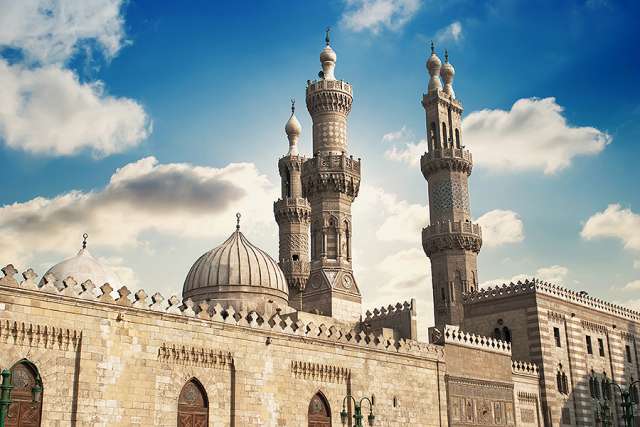ROME — In the wake of Pope Francis’s whirlwind visit to Egypt, the Vatican and the prestigious Muslim al-Azhar University have held another meeting, focusing on the landmark speeches given during the pope’s visit.
The meeting, which took place July 3 at the apostolic nunciature in Egypt, was arranged by the Pontifical Council for Interreligious Dialogue and the al-Azhar Center for Dialogue (CAD).
It fell two months after Pope Francis’s April 28-29 visit to Cairo, the result of a recent thawing in relations between the Vatican and the university, which had been strained since 2011.
According to a July 4 Vatican communique, the meeting focused primarily on the speeches of both Pope Francis and the Grand Imam of al-Azhar, Ahmed Muhammad al-Tayyib, during the pope’s visit.
Specifically, “the joint commitment to continue shared reflections, aimed at promoting a fruitful and effective interreligious dialogue was expressed, focusing in particular on the promotion of peace and the building of a more just world.”
Hailed as one of the most important speeches he’s given so far in his time as Bishop of Rome, the pope’s opening address to the International Conference on Peace, his first speech of the trip, issued harsh condemnation of religiously-motivated violence and a strong call for its rejection in the global sphere.
In the April 28 address, Francis said that “peace alone is holy and no act of violence can be perpetrated in the name of God, for it would profane his Name.
“Together, in the land where heaven and earth meet, this land of covenants between peoples and believers, let us say once more a firm and clear ‘No!’ to every form of violence, vengeance and hatred carried out in the name of religion or in the name of God,” he said.
Going on, the pope said we have “an obligation to denounce violations of human dignity and human rights, to expose attempts to justify every form of hatred in the name of religion, and to condemn these attempts as idolatrous caricatures of God.”
Violence and faith, belief and hatred, are incompatible, he said, and asked participants to join him in this affirmation: “together let us declare the sacredness of every human life against every form of violence, whether physical, social, educational or psychological,” he said, as the auditorium erupted in thunderous applause.
Likewise, al-Tayyib, who in his role as Grand Imam of al-Azhar is widely considered to be the highest authority in the 1.5-billion strong Sunni Muslim world, said in his speech that humanity ought to “stress the value of peace, justice, equality and human rights regardless of religion, color, race, or language.
“We need to liberate the image of religions from false concepts, misunderstandings, malpractices, and false religiosity attached to them. These evils bestir conflicts, spread hate, and instigate violence,” he said, adding that “we should not hold religion accountable for the crimes of any small group of followers.”
He thanked the pope for his “defense of Islam against the accusation of violence and terrorism,” and voiced his commitment to working together to establish peaceful coexistence and strengthen dialogue.
While many scholars are hesitant at to accept such messages from al-Azhar, claiming there is still a large discrepancy between what is said and what is taught in their curriculum, the restoration of ties with the Vatican is generally seen as a step in the right direction.
This most recent meeting between the Vatican and al-Azhar is the latest step in developing this dialogue.
It was attended by various representatives from both the Holy See and the Islamic university, including, on behalf of al-Azhar, Sheikh Prof. Mohey al-Din Afifi Ahmed, Secretary General of the Academy of Islamic Research of al-Azhar and Coordinator of dialogue at the CAD, and Dr. Kamal Boraiqa Abdelsalam, a member of the center.
The Vatican delegation included Bishop Miguel Ángel Ayuso Guixot, secretary of the council for interreligious dialogue; Msgr. Khaled Akasheh, head of the dicastery’s Office for Islam; and Father Jean Druel O.P., Director of the Dominican Institute of Oriental Studies in Cairo.














